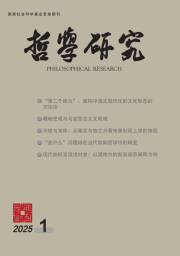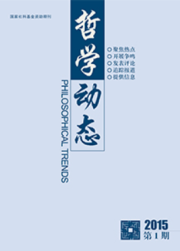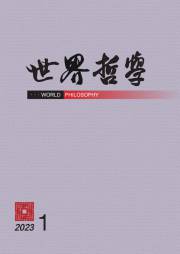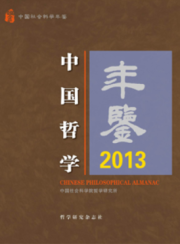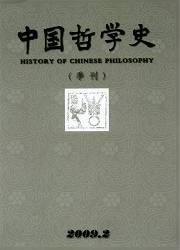中英美暑期哲学学院2010年报告(PHILOSOPHY SUMMER SCHOOL IN CHINA STAFF REPORT 2010 SESSION)
PHILOSOPHY SUMMER SCHOOL IN
STAFF REPORT 2010 SESSION
The innovative and demanding fourteenth session of the Summer School took place 26 July-15 August at
Four courses were presented on The Family; Applied Epistemology; Locke and Rousseau on Education; and Global Justice. The session and a preceding International Conference on Applied Philosophy: Facing the World Today held at
Staff members are grateful to Professor Xie Dikun, Professor Jiang Yi, Associate Professor Shan Jigang and Dr. Wang Ge from CASS and to Professor Wang Xiaodong, Associate Professor Luo Yuejun and their colleagues at
COURSES
Staff and members deeply appreciated the rich and thoughtful intellectual exchanges arising from the courses. The balance and diversity of the programme worked well and succeeded in extending the scope of applied philosophy beyond its initial domain of applied ethics. Staff members hope that future sessions will continue to offer stimulating critical courses that explore key philosophical issues and theories and will maintain the practice of avoiding general introductions that merely expound standard views. The courses were at a suitable level of difficulty and sophistication, and staff members recommend retaining the programme of four courses of 10 lectures each. Because lecture periods were reduced to one hour this year, much discussion of lectures took place in reading groups, the common room and informal exchanges. Nevertheless, from the beginning of the session members asked penetrating questions in the discussion periods during and after lectures. Members were able to grasp important issues explored in the lectures and to bring material from other courses into their discussion of these issues. Some were eager to pursue questions beyond the initial reply. Staff members recommend beginning lectures at 9:00 am rather than 8:00 am. This change would still allow a long break for private study between the morning and afternoon lectures, especially if, as in
One staff member distributed full texts of lectures, a second provided lecture abstracts, a third used power-point in lectures and a fourth projected excerpts and distributed supplementary material. These texts and other materials were sent to members by email attachment or were available for members to copy on memory sticks. Future staff should expect members to have a wide range of philosophical experience and a wide range of abilities in spoken English. Staff put key terms on the board and spoke slowly with clear articulation. They found it necessary to ask members to speak clearly and loudly in asking questions. On occasion, individual student contributions to discussion were inaudible to the others. The Chinese organisers asked members to begin reading those course texts that were available online before the session. In the future, material can be placed on a limited access website for members and auditors both before and during the session. Several members made audio recordings of the lectures, and a compilation of their recordings was available after the session.
READING GROUPS &
Reading groups met only on days when the staff member leading the group lectured, with some members of other groups choosing to sit in when their own groups did not meet. The reading groups successfully complemented the courses, with the best members showing skills in analysing and responding to the reading for each session. They read philosophically, appreciated the main argumentative structure of the assigned reading and understood its context and background, although some members did not keep up with the assigned reading. The level of the reading was appropriate, but some members initially lacked ease with spoken English or philosophical confidence. Some problems arose from the mode of English expression, for example, where an author’s ironic tone was missed by the members, and one staff member would have replaced some of the articles chosen for reading. The members who regularly contributed to discussion varied from about a third of the group to all the members. One Staff member found it useful to refer back to previous interventions by individuals in earlier classes, thereby encouraging them to speak again. Members regularly took extensive notes on the reading and discussed it among themselves. Informal exchanges with members outside the reading group -- in the common room, in the hotel and en route to and from the teaching rooms -- encouraged otherwise shy individuals to contribute and helped to represent staff members as accessible and non-intimidating figures. Reading group sessions were scheduled to last 80 minutes but in many cases discussion of the reading was completed in an hour.
COMMON ROOM
Common room discussion was a crucial means of intellectual contact during the session. Staff and members grew to know one another individually through extensive exchanges over questions arising from the courses and other philosophical issues. Common room sessions were initially held in the landscaped square in front of the teaching building and then in the back lobby of the hotel. These venues were not ideal, but both were preferable to the formality of the lecture room. Future common rooms should be held in attractive informal settings allowing easy movement among small conversational groups.
COURSEWORK AND ASSESSMENT
No course work was assigned by staff members this year. Assessment was based on the assessment examination. Members answered one question in no more that 1500 words and submitted their scripts at the end of a 48-hour examination period. The examination paper of fourteen questions included three questions for each course and two more general questions about applied philosophy. Answers were distributed well among the set questions, with all questions but one attracting answers. Scripts were double marked, and David Archard, assisted by Nicholas Bunnin, ranked the best distinction scripts. In some cases, members made good use of material from other courses in answering a question drawn from one course.
The Summer School uses the Distinction mark as the rough equivalent of a First or IIi mark in a British university to indicate that in their examination essays members have shown a capacity to go on to graduate studies abroad and, within the Distinction class, Distinctions were ranked for members who achieved the rough equivalent of a First class mark. The Satisfactory mark is the equivalent of a IIii or Third class mark in a British university. The examination instructions asked members to place their names on separate sheets at the end of the essays rather than at the beginning of the scripts in order to allow anonymous marking.
One staff member suggested that members in future sessions place an assigned examination number rather than their names and institutions on their essays to guarantee anonymous marking.
Sixteen members (50%) gained distinctions. The five members (16%) gaining ranked distinctions achieved a standard at least broadly equivalent to First Class undergraduate degree work in a British university. Sixteen members (50%) were awarded satisfactory marks.
Of the five individually ranked distinction scripts, two were submitted by Assistant Researchers at
SELECTION OF MEMBERS
Members were selected from applicants by the
Members and auditors were drawn both from major centres of philosophy and secondary centres. Two auditors were Chinese students studying in the
The philosophical background and ability of members also varied widely, but staff members were pleased that all gained from participation in the session. The best members were exceptionally able, and the standard of the group as a whole was comparable to that of western undergraduates. The best members were from major philosophical centres, and the weakest members were from institutions with marginal strength in philosophy, although other members from secondary institutions performed very well.
Staff members were disturbed to learn that some male students and professors in Chinese universities display hostility to women doing philosophy, ranging from dismissive and contemptuous attitudes in class to stated unwillingness to work with women. Staff members recommend maintaining the pattern of having female staff members in the Summer School and suggest ensuring that the work of western female philosophers is included in course reading.
RESEARCH VISITS
The selection procedure for Summer School research visits, normally to a university represented by a staff member for the session, is based on the assessment examination, with the best distinction scripts ranked in order of merit. Members with ranked distinctions who have already studied abroad or who have secured places to study abroad can be excluded from Summer School awards. The examiners have proposed offering a three-month visit to the mainland Chinese member submitting the best script. Summer School awards provide a subsistence grant to holders, but do not cover international airfare.
The Summer School is willing to help any member with a ranked distinction who seeks a place for an academic visit or degree study in the
Summer School awards are currently restricted to members from mainland
Staff members propose continuing to choose members for research visits on the basis of their performance in the assessment examination. One staff member suggested that the final ranking might be based on
answers to two questions rather than one. This would provide fuller evidence of abilities in a breadth of topics, where a single answer might be based on knowledge already possessed before the session. Given the logistic difficulties in submitting and marking work, this change could involve asking top ranked students after the assessment examination to submit a further answer to a question from the examination paper for marking after staff members return from
CONTACTS WITH SENIOR PHILOSOPHERS
Staff members were warmly welcomed by Professor Ding Liqun (Vice-President, Heilongjiang University), Professor Wang Xiaodong (Philosophy Department, Heilongjiang University), Associate Professor Luo Yuejun (Philosophy Department, Heilongjiang University), Professor Xie Dikun (Director, Institute of Philosophy, CASS and Chair of the Chinese Committee of the Summer School), Associate Professor Shan Jigang (Secretary General of Research Department, Institute of Philosophy, CASS and Vice-Chair of the Chinese Committee of the Summer School) and Professor Jiang Yi (Beijing Normal University and former Chair of the Chinese Committee of the Summer School). We are also pleased to thank other members of the
Before the session, all but one staff member took part in the International Conference on Applied Philosophy: Facing the World Today at
ACADEMIC ACCOMMODATION
Lectures and reading groups were held in light and airy rooms. A modest amount of outside noise did not interfere with the proceedings, and fine weather ensured that the rooms remained comfortable throughout the session. Some reading groups rearranged furniture in a circle for each meeting to provide an appropriate setting for discussion, and one reading group regularly met in the open air outside the teaching building. Staff members hope that in the future host institutions can provide seminar rooms rather than lecture rooms for reading groups and an informal setting for the common room. Staff members were pleased with support for photocopying course materials. They welcomed internet access in their own rooms, although one room had defective access, and access in the other rooms was not completely reliable. Staff members appreciated the help offered by the reading group coordinators Li Jian, Wei Kaiqiong, Zhang Peipei and Wang Ge.
STAFF ACCOMMODATION
Staff members were accommodated at the Heilongjiang University Athletes’ Apartment hotel in clean, comfortable, efficiently air conditioned en suite bedroom-studies, about a ten-minute walk from the teaching building. Each room had a television and telephone. Staff members would have welcomed refrigerators and a laundry service, and one staff member lacked easy access to potable hot water. Internet access was available in all but one room, but there were ongoing problems with its operation.
SPARE TIME ACTIVITIES
In Harbin, staff members enjoyed the Russian architectural heritage of the centre of Harbin, especially St. Sophia Cathedral and the New Synagogue, and experienced the relaxed atmosphere along the Songhua River in Stalin Park and Sun Island, the calm of Buddhist and Confucian Temples and attractive meals in Dongbei, Korean, Buddhist Vegetarian and Russian restaurants. They also paid a sombre visit to the Museum commemorating the victims of torture and death through scientific experimentation by the occupying Japanese Army’s 731 Unit in the 1930s and 1940s. Some visited the former home of the twentieth-century writer Xiao Hongong; the Qing dynasty governmental headquarters where railway and other negotiations with the leaders of the Russian legislative council took place from 1905 and the museum at the site of original twelfth-century capital the Jin dynasty. Before the session Timothy O’Hagan and his wife Jennifer visited
Staff were immensely grateful for the assistance and friendship of Dr. Wang Ge, who coordinated the session for the
CONCLUSION
The session was an excellent experience for staff members, and we hope that it will inspire some members to continue their explorations in applied philosophy and also hope that other members will find their studies in other areas of philosophy enriched by the session. Members were exemplary in their intelligence, dedication and hard work, and we anticipate having continued contact with them in their further careers.
Professor David Archard Professor Timothy O’Hagan
(
Dr. Nicholas Bunnin Professor Thomas Pogge
(
Dr. David Coady
(

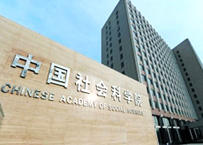
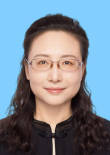
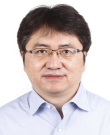
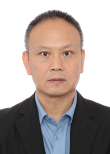
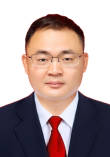
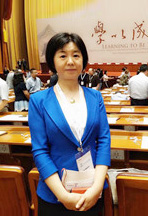

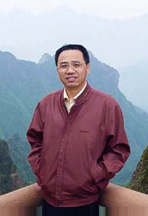







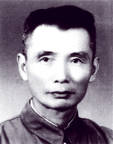 潘梓年
潘梓年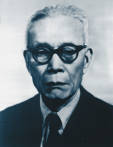 金岳霖
金岳霖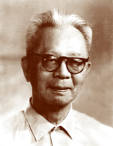 贺麟
贺麟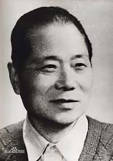 杜任之
杜任之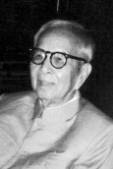 容肇祖
容肇祖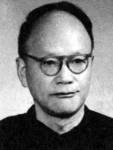 沈有鼎
沈有鼎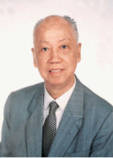 巫白慧
巫白慧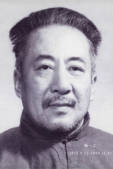 杨一之
杨一之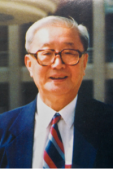 徐崇温
徐崇温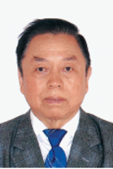 陈筠泉
陈筠泉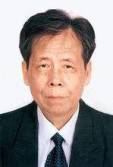 姚介厚
姚介厚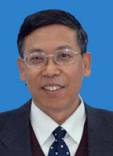 李景源
李景源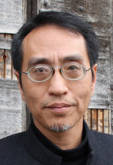 赵汀阳
赵汀阳